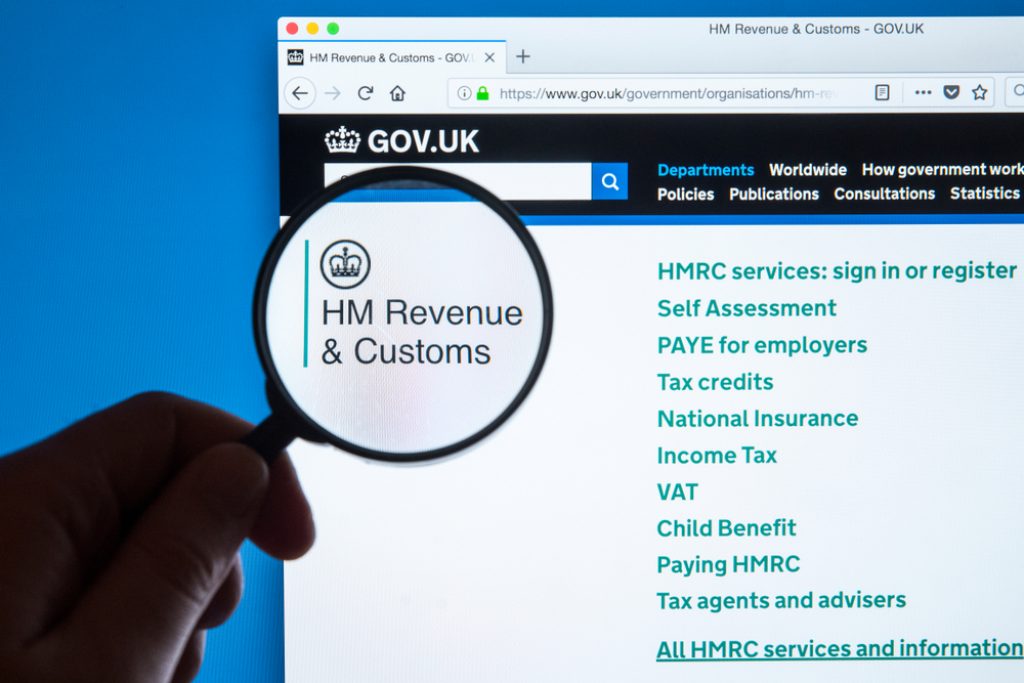Christmas is an unusually popular time to get your tax return filed to HMRC but 22,000 people choose to complete the dreaded task over the festive period. Read our guide on filing your return and the benefits it offers.
There are just six weeks left to file a self-assessment tax return for 2022/23 earnings and settle your bill with HMRC.
Despite having just less than 10 months to declare your self-employed earnings and expenses for the previous year, more than 860,000 taxpayers filed their returns on deadline day, 31 January according to government figures.
But leaving your tax return until the last minute means you could wind up paying a penalty for filing late if you encounter an unexpected delay or miss out on claiming back valuable tax because you’re in a rush.
Reasons not to delay
Anyone completing a self-assessment tax return for the first time must leave around two weeks to register on the Government’s system. First you need to generate a Government Gateway User Identification by completing an online application. Once your application is complete, you’ll receive a Unique Taxpayer Reference number which comes in the post ten days later. The reference number is needed to activate your online tax self-assessment.
Even if you’re already registered, it could be a year since you last logged on to the Government Gateway so your memory of log-on details may be sketchy. If you enter the wrong details five times you will be locked out for two hours. If you had planned to be one of 37,767 people who filed between 11pm and midnight on 31 January, you’d end up filing late.
Although the average time to complete a tax return is two and a half hours, according to a Which? survey, if you’re new to the process it may take a lot longer particularly if you cannot find paperwork or need to order replacement copies. And now there’s less help available on the other end of the phone. This year, HMRC has decided to stop answering simple queries over the phone if they can be sorted out online so it’s sensible to give yourself plenty of time to complete your return.
Benefits of filing a tax return
Beyond declaring your self-employed earnings to the tax man, there are other benefits to filing a tax return which could result in you claiming money back or applying for exemptions.
Dawn Register from accountancy and business advisory firm BDO said: “Christmas can be a very busy period, and it might be tempting to try and file your tax return as quickly as you can to get it out the way. But it’s worth taking the time to check you are claiming for everything that you are entitled to. And in certain circumstances, not claiming for things like tax relief on pension contributions can be a costly mistake, as you could forfeit your right to certain valuable benefits.”
1. Claiming pension relief
If you make personal pension contributions, you are entitled to relief on your contribution at the same rate as you pay income tax. Basic rate employed and self-employed taxpayers who pay 20% income tax receive 20% of their pension contribution directly back into their pension fund. But higher rate or top rate taxpayers must claim the additional 20% or 25% respectively through a tax return, even if they are employed. Failing to do so means you’re missing out on free cash for your retirement. However, if you have a trust-based workplace pension scheme or a salary sacrifice scheme higher rate taxpayers get 40% relief deposited in their account automatically.
You can go back up to four years and claim higher and top rate relief by contacting HRMC directly.
2. Reduce or cancel out your High Income Child Benefit Charge
If you or your partner claims child benefit, currently £24 for the eldest child and £15.90 per child for other children, your benefit will begin to be clawed back if you or your partner’s salary hits £50,000 a year. When the salary of the higher earner rises to £60,000 a year, you will have to pay back the whole benefit. The High Income Child Benefit charge is paid back via the self-assessment process.
However, if you have upped your pension contributions to bring your salary down below the £60,000 limit, you can reduce the level of your charge and keep more of your child benefit. It is therefore important to include details of any pension contributions on your self-assessment form so HMRC is aware of your benefit entitlement.
3. Reduce your tax burden by claiming for allowable expenses
Expenses incurred during your line of self-employed work can generally be claimed for. There’s a useful list of allowable expenses on the Government’s website. You can also claim for costs associated with working from home or using your car which include heating and lighting your home during working hours, running necessary electrical devices and petrol. You can use the Government’s simplified expenses checker to find out the best way to claim.
4. Making your charitable donations pay
If you’ve made a charitable donation and ticked the Gift Aid box, the Government tops up your donation to the charity with the basic rate of tax relief, at 20%. If you’re a higher or top rate tax payer, paying 40% or 45% income tax you can also pay less income tax by making a donation to charity. This is because you can claim back the extra 20%/25% relief for yourself through self-assessment or even through your tax code if you are employed.
“Don’t forget to claim for both regular donations as well as one-off gifts,” said BDO’s Register. Donations aren’t just cash. Donations of land, shares or property count too.
5. Get rewarded for taking a risk
You can claim tax relief on your venture capital investments. This type of investment is considered higher risk because you’re backing younger, smaller companies with your cash. But by investing through the Enterprise Investment Scheme you can claim back 30% tax relief through your return. You need the investment certificate from the company to make a claim on your tax return.
Who needs to file a self-assessment return?
It isn’t just sole traders and self-employed workers who are partners in a business partnership that need to file a tax return, here’s a list of some employed people who do too.
Certain households receiving child benefit
If you’re earning £50,000 or more you’ll be subject to the Higher Income Child Benefit Charge. This is 1% income tax per £100 of income above the £50,000 threshold. For example, if you earned £55,000 you would need to repay 50% of the benefit. You’re not entitled to any benefit (even though it is still being paid to you) as soon as one adult’s taxable income reaches £60,000. The only way to pay the charge or give all the benefit back to the government is by filing a tax return.
High earning salaried worker
If you earn more than £100,000 of taxable income you must complete a tax return. That’s because HMRC wants to check on issues like the phasing down of your personal allowance of £12,570. This must be reduced by £1 for every £2 you earn over £100,000. The tax man needs to check that the adjustment made for this in your tax code, based on an estimate of your earnings made back in April 2022, operated correctly when calculating your tax bill for the whole of 2022/23.
Anyone who has gifted shares or property
You may be liable to pay Capital Gains Tax so a tax return should be completed to declare your gifts. You don’t need to pay tax if you’ve gifted your main home to a spouse or civil partner. The annual exemption for Capital Gains Tax is £6,000.
Penalties for being late
If you file your return after midnight on 31 January 2024 or pay your tax bill after this date you will face a fine which increases as time ticks by.
By missing the deadline, you’ll be charged a £100 fixed penalty for filing late even if no tax is due.
After three months £10 daily penalties start to accrue and are added to the original charge up to a maximum of £900. Six months on, if you still haven’t filed or paid your tax bill a further penalty of 5% of the tax owed or £300, which is the greater, is added to your mounting charges. After 12 months, another 5% or £300 fee accrues.
If your debt is less than £30,000 and it is not overdue by more than 60 days and you don’t have ay other live payment plans you can apply online for a Time to Pay arrangement. This allows you to spread the cost of your tax bill. You’ll complete an online assessment of your income and outgoings to determine your monthly payment and length of the agreement. But this agreement does not come cheap. The interest rate is set at 2.5% about the base rate (which is currently 5.25%) which means you’ll pay 7.75% interest on your debt from the time it became overdue.
People unable to apply online for pay plan, for example, because they owe more than £30,000 can still contact HMRC to discuss payment options.





